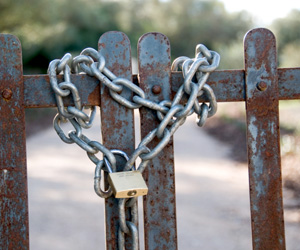 Oct. 13, 2014 – A relatively new law known as the “castle doctrine,” which gives residents more legal protection when they injure or kill someone who enters their home without permission, did not extend to a man who shot at intruders outside his home.
Oct. 13, 2014 – A relatively new law known as the “castle doctrine,” which gives residents more legal protection when they injure or kill someone who enters their home without permission, did not extend to a man who shot at intruders outside his home.
Charles Chew shot two men with a firearm after they entered his apartment, but then chased them outside and fired shots as they fled. One of the men was the boyfriend of Chew’s ex-girlfriend, Cheryl McCranie. The other was the boyfriend’s friend.
Both men had accompanied McCranie to Chew’s apartment. McCranie, who previously lived there, was attempting to retrieve some personal belongings.
McCranie’s boyfriend, Andrew Lee, and his friend Andreaius, first waited in the car but then approached Chew’s apartment. They entered the apartment after hearing McCranie and Chew arguing and proceeded to physically attack Chew inside.
Chew responded by firing gunshots to the legs of both men. Then Chew chased them out and kept shooting. His bullets missed the men but hit a car and a nearby hotel.
Chew was not charged for firing the gun at his attackers inside the apartment. But he was charged for firing shots outside the apartment as the two men fled.
Chew requested the “castle doctrine” jury instruction under Wis. Stat. section 939.48(1m), which says the court “shall presume” that an actor reasonably believed that force was necessary to prevent imminent death or great bodily harm if the person against whom force was used unlawfully and forcibly entered the residence, the resident believed the entry was unlawful, and the resident was present in the dwelling.
Aside from a dispute about whether Lee and Lucas entered the premises unlawfully with force, the trial the court found that the jury instruction did not apply because Lee and Lucas were not in Chew’s dwelling when Chew fired the second round of gun shots. In State v. Chew, 2013AP2592 (Oct. 1, 2014), a three-judge panel agreed.
“We conclude that the trial court did not err in declining to give an instruction under the statute because Lee and Lucas were not in Chew’s dwelling at the time of the shooting in question, but rather had left the actor’s apartment and were running away from the apartment complex across an open parking lot,” wrote Judge Lisa Neubauer.
Chew argued that the doctrine applied because it extended to the parking lot of the apartment complex, but the appeals court panel declined.
The applicable definition of “dwelling” includes “part of the lot or site on which the dwelling is situated,” but the lot or site must be “devoted to residential use.” On this point, the panel distinguished driveways and sidewalks from a shared parking lot.
“An apartment building parking lot … is shared by all the tenants. It is not exclusive to Chew or ‘devoted to [the] residential use’ of any one tenant,” Judge Neubauer wrote.
“The castle doctrine does not justify continued use of deadly force against an intruder when that intruder is no longer in the actor’s dwelling.”
Related Article
